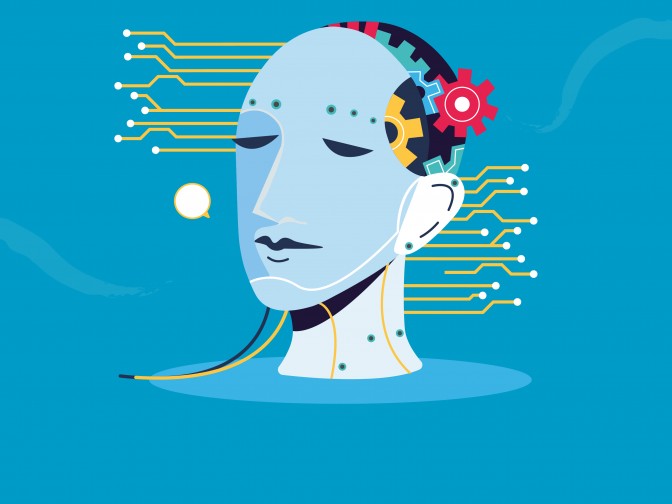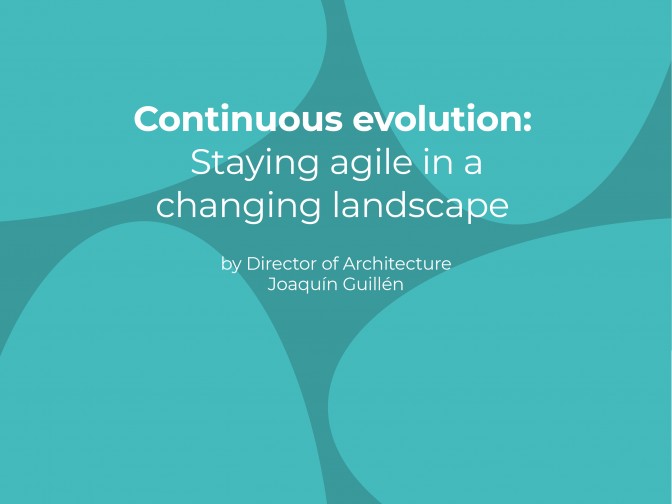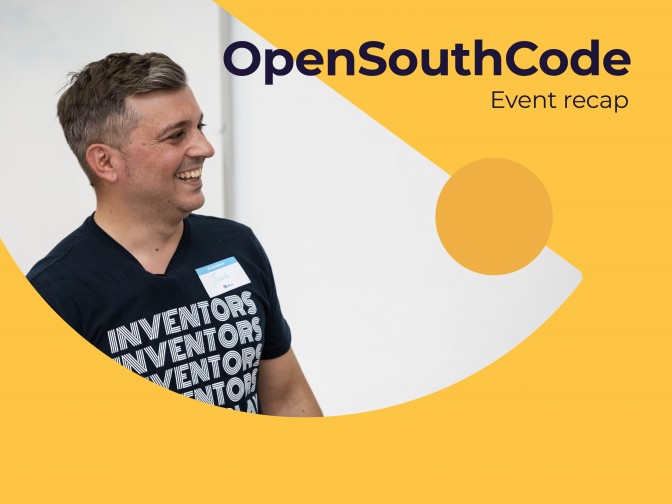My name is Marta, and I’m part of the Data Analytics team here at The Workshop. Recently, I had the opportunity to attend Málaga’s J on the Beach data conference and I’m thrilled to share my experience with you here. Conferences like this one are fantastic for developers and data analysts like myself, since they provide a platform for exchanging ideas, staying plugged in to the latest trends and connecting with like-minded professionals in the local tech community.
Way back in November, fuelled by the excitement of ‘early bird’ offers, I secured my ticket to J on the Beach 2023. As an Inventor at The Workshop, we each receive an annual learning budget. I decided to invest part of mine in this event – and I’m so pleased I did! The conference offered me a wealth of fresh insight and inspiration. Below, you’ll find a quick recap of my top talks and takeaways.
J on the Beach: Where & when
J on the Beach is held each year in Málaga, a vibrant city on the southern coast of Spain that’s also home to one of The Workshop’s main offices. Well-known for its rich history, stunning architecture, picturesque landscapes and laid-back Mediterranean lifestyle, Málaga is the perfect spot for a conference (and a career!)
This year’s J on the Beach event was held 10 – 12 May at the FYCMA, also known as the Palacio de Ferias y Congresos, near the city centre. The exhibition area and lecture halls played host to much bustle, discussion and discovery over the course of the three-day event. And with every workshop and keynote I attended, I took away valuable lessons that tied directly into my day-to-day work and goals.
AI & ethics
In “Unearth the black box,” Rashmi Nagpal (@iamrashminagpal) used practical examples and ChatGPT conversations to demonstrate how bias can be embedded in data, algorithms and interactions with AI systems. In her presentation, she explored the challenges of bias in ML models, as well as techniques for building fair and trustworthy systems using SHAP (SHapley Additive exPlanations) and LIME (Local Interpretable Model-Agnostic Explanations). For me, this session underscored the importance of The Workshop’s own commitment to ethical practices in data analysis and provided a few practical tools for mitigating bias in our work.
Another favourite J on the Beach speaker of mine was Santiago Valdarrama (@svpino), whose recent viral video showcasing the integration of ChatGPT with Spot the robot dog generated significant interest, illustrating the convergence of AI and robotics. In his brilliant presentation, “We made our robots talk,” Santiago shared insights into how his team leveraged Whisper to enable the robot to understand spoken language, then using Google’s text-to-speech API to facilitate the robot’s ability to communicate. This presentation served as a reminder that AI technologies, when appropriately harnessed, can complement and augment human capabilities rather than replacing them. By embracing progress and incorporating AI into our workflows, we can leverage its power to boost efficiency, productivity and innovation.
AI & beauty?!
Meanwhile, Dr. Chanuki Illushka Seresinhe (@thoughtsymmetry) also delved into the world of AI, delivering an entertaining talk on using AI to identify the scenic quality of images. In her presentation, “Unravelling insights about places with computer vision,” Dr. Seresinhe used convolutional neural networks (CNNs), training them to discern the features that make one image more scenic than another, ingeniously employing wide-angle Google Street View images and modifying them to fit into the model. Her innovative approach resonated with our own, since at The Workshop we have a commitment to leveraging AI for data-driven decision-making and enhancing user experience.
Staying ahead of the curve
At The Workshop, we’re dedicated to staying at the forefront of data processing techniques and finding efficient solutions for handling large-scale datasets. Marlene Mhangami’s (@marlene_zw) session, “Elephants, ibises and a more pythonic way to work with databases,” discussed how Ibis, Polars, Apache Arrow and DuckDB can be used to process big data. Polars is a data manipulation library that integrates seamlessly with Ibis, while Apache Arrow provides a standardised in-memory columnar data format for efficient data interchange and DuckDB is the default backend for Ibis when installed via pip. Her talk certainly gave us some food for thought and highlighted the value of our forward-thinking approach to data processing.
Finally, Nadieh Bremer (@NadiehBremer) gave one of my favourite keynotes of the whole conference, “Visualising connections.” As a data analyst working with web analytics, finding a proper way to visualise connections (e.g. the sequence of actions taking place during a website visit), has always posed a complex and interesting challenge. In her talk, Nadieh took us through her creative process with funny and often beautiful examples, ranging from cultural interpretations of stars to Google searches about animals. By harnessing the power of D3.js and combining it with creative storytelling techniques, Nadieh demonstrated how data visualisation can captivate audiences, even while communicating complex concepts and insights.
A whirlwind of learning
This brief snapshot of J on the Beach barely scratches the surface of everything covered over the intense three-day event. The combination of hands-on workshops, presentations and exhibitor booth activities expanded my understanding of my field and sparked countless new ideas for my work. It was engaging, inclusive and I can’t wait to go back next year.
Whether you’re a seasoned professional or an aspiring one, whether you’re based in Málaga or elsewhere, my advice is to embrace every opportunity to dive into events like these, drink in the information and use it to propel you towards achieving your next objectives. I certainly will!



